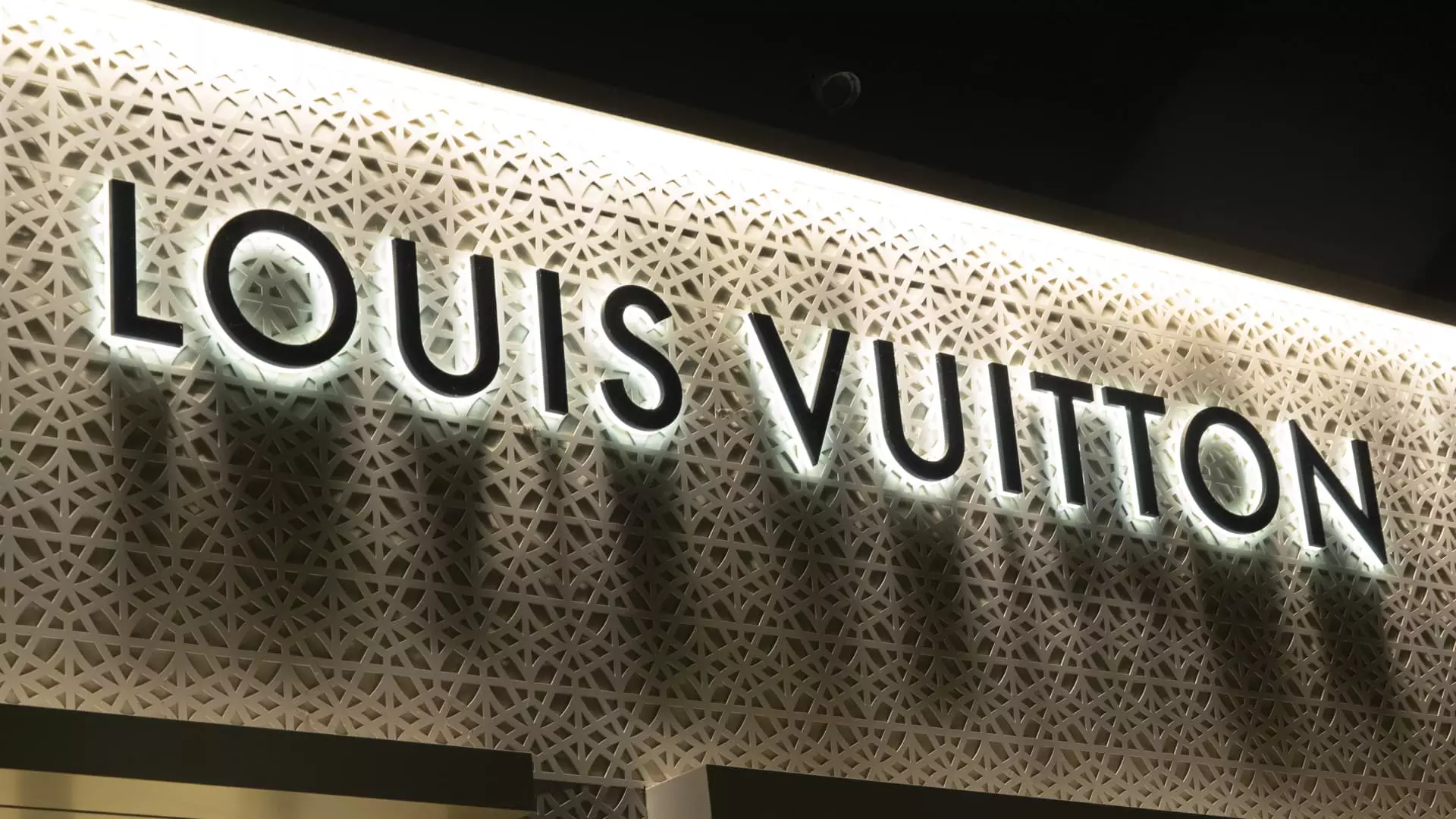On Tuesday, LVMH, the world’s leading luxury conglomerate, unveiled its financial results for 2024, exceeding analyst expectations and providing a glimmer of hope for the beleaguered high-end retail sector. This announcement is particularly significant as it marks a potential inflection point for a market that has struggled in recent years. The conglomerate, which houses prestigious brands such as Louis Vuitton, Moët & Chandon, and Hennessy, reported revenues of 84.68 billion euros (approximately $88.27 billion), outperforming the forecast of 84.38 billion euros posited by LSEG analysts.
This growth signals an organic increase of 1% compared to the previous year, reflecting a rebound that seemed improbable after a disconcerting period when luxury sales faltered due to changing consumer habits and economic struggles. Moreover, the fourth quarter revealed a noteworthy recovery, with sales rising significantly after an alarming dip in the preceding quarter—marking the first decline since the pandemic began. Interestingly, this resurgence was bolstered by robust consumer spending in key markets, namely Europe, the U.S., and Japan. However, LVMH acknowledged persistent challenges in the broader Asian market, which continues to exert pressure on its overall sales performance.
Bernard Arnault, the company’s Chairman and CEO, emphasized the resilience of LVMH amidst an unpredictable economic landscape. He articulated that the organization’s ability to navigate tumultuous waters, a feat demonstrated throughout its history, underscores the effectiveness of its strategic approach. This assertion of strength is critical, especially against the backdrop of prevailing geopolitical and macroeconomic uncertainties that loom over the global market.
While the performance of LVMH’s selective retailing division, which includes brands like Sephora, showcased remarkable strength, other segments within the conglomerate did not share the same fate. The fashion and leather goods category, despite its historical importance, faced challenges that hindered its contribution to overall growth. Furthermore, the wine and spirits division struggled, particularly with a notable decline in cognac and spirits sales. Arnault expressed cautious optimism regarding this segment, projecting a recovery within a two-year timeframe as new leadership familiarizes itself with the operational intricacies.
The Luxury Market’s Broader Context
LVMH’s results serve not only as a bellwether for the company itself but also provide insights into the overall luxury goods industry. With luxury brands recently confronting declining sales in China and the advent of broader economic headwinds, the group’s promising figures are welcomed news. Analysts posit that LVMH’s diverse portfolio spanning across various categories will yield more conclusive reflections of luxury market trends compared to other brands that may have more limited offerings.
The luxury sector has seen some positive momentum as evidenced by Cartier’s parent company, Richemont, which recently announced record-breaking quarterly sales. Similarly, Burberry’s less drastic decline in sales amid ongoing strategic changes points toward a sector gradually recovering from its pre-pandemic struggles. Yet, the magnitude of LVMH’s dominance across multiple luxury categories—from high fashion to cosmetics and fine wines—positions it as a key indicator of the industry’s health.
Investors have responded favorably to LVMH’s positive outlook; shares have surged approximately 18% year-to-date, recovering from a significant 13% drop earlier in 2024. The group’s restored standing as Europe’s most valuable company, following the latest financial disclosures, illustrates the market’s renewed confidence in its ability to navigate future uncertainties effectively. Investors are closely monitoring how LVMH will capitalize on its rich heritage and storied brands to sustain this momentum in a fluctuating economic environment.
LVMH’s impressive financial performance serves as a hopeful signal for both the company and the broader luxury market. With its underlying strengths visible even amidst challenges, the company’s ability to strategize and adapt will ultimately determine its trajectory in the face of an ever-evolving global landscape. As the luxury sector inches toward recovery, LVMH remains at the forefront, showcasing resilience and determination in a landscape marked by uncertainty.


Leave a Reply